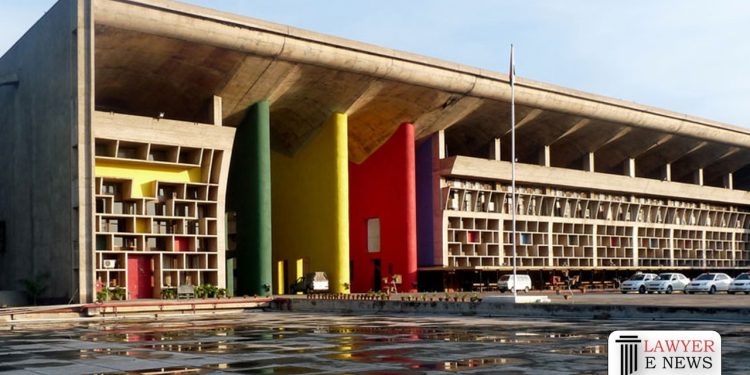Strikes Down Impugned Order, Immovable Property Must Be Instituted Within The Local Limits Of The Court’s Jurisdiction – P&H HC

In a significant legal development, a recent judgment has overturned an impugned order and reinforced the exclusive jurisdiction of courts in Gurugram, Haryana, over a case involving immovable property situated in the region. The ruling, delivered by the learned Judge Nidhi Gupta, scrutinized the jurisdictional aspect of the case, with profound observations regarding the principles governing the subject matter.
The court’s meticulous scrutiny delved into the complexities surrounding the issue of jurisdiction, centering around a property dispute case that was initially instituted in the Court of Patiala, Punjab. The heart of the matter revolved around the defendant’s contention that the court at Patiala lacked territorial jurisdiction to preside over a suit concerning immovable property located in Gurugram.
Delving into the legal intricacies, the judgment dissected the provisions of the Code of Civil Procedure (CPC), emphasizing Section 16 and Section 20, which dictate the jurisdictional principles for filing suits related to immovable property. The court categorically pointed out that, as per Section 16 of the CPC, suits pertaining to immovable property must be instituted within the local limits of the court’s jurisdiction where the property is situated.
Intriguingly, the judgment drew parallels with a precedent-setting Supreme Court case, Harshad Chiman Lal Modi vs. DLF Universal Ltd, to underscore that the jurisdiction of a court cannot be conferred by agreement or contract when the court lacks the jurisdiction as per the provisions of the CPC. The court asserted that parties cannot circumvent the established legal provisions by stipulating jurisdictional clauses in agreements, reinforcing the primacy of statutory provisions.
The judgment underscored that courts within whose territorial jurisdiction the property is not situated lack the authority to adjudicate on matters related to that property. In a striking observation, the court affirmed that such courts have “no power to deal with or decide the rights or interests in respect of such property.” Drawing on legal tenets, the judgment emphasized that a court without jurisdiction renders decisions that are null and void.
Highlighting the pivotal nature of the case, the court set aside the impugned order, conclusively asserting that the court at Patiala did not have jurisdiction to entertain the suit. The judgment championed the principles enshrined in the CPC, emphasizing that actions against property should be brought in the forum where the property is situated. It further directed the plaintiff to refile the suit before the competent courts in Gurugram, allowing for the exclusion of time elapsed during the earlier proceedings.
This ruling serves as a beacon, reaffirming the significance of jurisdictional principles within the framework of Indian civil law. The judgment’s meticulous analysis of the subject sets a robust precedent for addressing property disputes and reinforces the foundational principles of legal jurisdiction.
Date of Decision: 16th August 2023
Saroj Kalia vs Lakhwinder Singh






